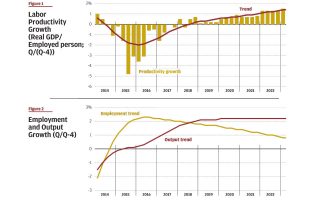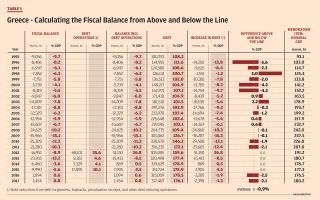How costly is the ownership of state assets?

Who owns state enterprises?
Taxpayers do.
How do they wind up being the owners of the state enterprises?
The political representatives decide to purchase the state enterprises, or create them, or confiscate them, with the taxpayers’ money.
Thus, the taxpayers are really the shareholders of all state enterprises?
Yes, they are.
What is the rate of return taxpayers get from owning state enterprises?
Nobody knows.
Laws are written that if a private company with public shareholders does not publish a set of financial accounts, often twice a year, and fully audited annual accounts, once a year, then management may go to jail. These laws are seldom, if ever, applied to state enterprises that are funded, or funded in part, with taxpayer money. This seems odd. Why are these reports good to keep private managers on their toes with disclosure to the owners of the firm, but political representatives have no requirement to do the same for their shareholders – the taxpayers? Has any reader ever seen even a list of what the government owns on your behalf?
I would argue, based on experience, that public accounting and disclosure lags miles behind private accounting and disclosure. It is unclear why this is the case, other than surmising that politicians can’t be bothered to render transparency what they do with the taxpayers’ money. This is not only in Greece, it is almost universally the case in other countries too (perhaps New Zealand being an exception). Thus, I make a plea for improved disclosure and a full public sector balance sheet at least once a year, together with the budget documents. In these statements, the government should disclose what assets it owns, report on the financial well-being of these state assets, and on the rate of return that the taxpayers are getting on these assets. If there are state enterprises, these should be subjected to exactly the same financial reporting and auditing standards as private sector enterprises, with a profit and loss statement, a statement of cash flow, a full balance sheet, and a table explaining the variation in net worth.
Governments are slowly getting better at disclosing how much debt they have, but there is no equivalent counterpart disclosure on the asset side of the balance sheet. Is this so difficult? One way to start is to publish the names of all state enterprises that the government owns, and the percentage share of equity holdings that the government may own in mixed private-public enterprises. Then the government can take the next step of starting to provide more financial information on these enterprises in a follow-up report, etc.
Here is why I believe this is interesting. In 2009, when I studied the Greek economy in detail for the first time, I came upon a paper published by a think tank that suggested that the Greek state had invested perhaps as much as 300 billion euros in state assets, principally state enterprises and real property. In other words, the assets that the state owned at that time would be at least as large as the public debt at that time. And the net worth from this simple approximation should be positive – the summarized balance sheet should be solvent. But there were no estimates on the profits or returns the state was making from all these assets, or how they were even used, or if they were used in an economically sound way, or, if not in a financially productive way, whether any political explanation was offered for the state owning these assets in the first place.
Now, this figure of 300 billion euros was questioned, and some other analysts speculated that the state assets, including enterprises, would be worth much less than that amount (this discussion became very important in the context of the privatization program). The only other number that I remember coming up is “around 70 billion euros at today’s market value” or thereabouts. Well, 230 billion euros is a big difference in these two valuations, and the discussion pretty much ended there.
I do not know if there is someone, or some group, or government office in Greece today that is trying to gain clarity on the value of government asset holdings (there should be), because I am not aware of any work being published in a comprehensive balance sheet in this respect, but these numbers above did not really leave me at ease. What might be going on, I thought?
Having seen similar issues in other countries, where governments even routinely had to pump more money into already existing state enterprises, because they were constantly running out of money and destroying taxpayer value, I speculated on the following possibility. What if the first set of analysts had collected numbers on capital spending by the government over the years and figured out that the public sector must have spent around 300 billion euros to acquire these assets; and the other analysts had calculated a proxy for what these assets would be worth today in a commercial market transaction, given the remaining quality of these assets and upkeep over the years? Private corporations of course do this on a continuous basis: They invest in plant and equipment, which then gets depreciated over time, but they also replace and expand plant and equipment over time as the firm generates a positive rate of return on its installed capacity. Companies that are successful and make a profit see the value of their assets and net worth increase over time. Companies or entities that are unsuccessful and make losses and destroy value see the value of their assets and net worth decrease over time. Is it possible that the state assets are used in such a way that they have lost considerable value over time, but the shareholders (taxpayers) cannot see this and are unaware, because none of the accounting is done and published on a regular basis?
Thus, to take our thought experiment a step further, is it possible that both analysts were correct (roughly speaking). The assets were acquired for about 300 billion euros, financed with debt, and they are now worth 70 billion at market value? The debt, of course, has not declined, but the value of the assets has dropped significantly. How could such a process evolve in practice?
There are a few techniques that have been tried and true in many countries. Politicians become involved in state enterprises. Because they want to distribute rents (favors) to their constituents, they place selected supporters on the payroll of these enterprises. Because these individuals need not know anything about how to run these corporations, their salaries (and decisions) are a deadweight burden, and profitability starts declining. Also, perhaps there are political obligations to distribute subsidies to the voters via below-cost prices for the services from these state enterprises without compensating the enterprises for the losses of these subsidies (these directives often go under the euphemism of “public service obligations,” or PSOs). In Greece, how much does it cost to provide electricity to all the islands and what tariffs do consumers of this electricity pay? Does the power company write off the losses (I mention the power company, but this can be done with many other companies, too), or is it properly compensated from the budget for the economic costs of these subsidies and PSOs imposed through the political process? If the state enterprise is not systematically compensated for PSOs, which is likely to be the case, the state company winds up writing off the losses and net worth declines – this is asset value destruction. Another example may be that if you have a very powerful constituent (a mogul), who assists with payments for an election campaign, can this constituent ask for favors of public services to his companies after the elections at a price that includes a subsidy? This payback for assisting politicians will then be written off by the state enterprises too, and the net worth of the state assets further declines. Thus, whereas a private company could not remain in business without a decent rate of return, a state company can make a cash call on the taxpayers at some intervals (make losses, followed by occasional recapitalizations) and never go out of business.
This seeping away of net worth from the original purchasing cost/price of the acquired state enterprise over time so as to distribute benefits to selected constituents or powerful special interests, is a form of privatization. It is the gradual privatization of the value of the assets and net worth of the state enterprises to the lucky few who have access to these subsidies via their political influence. This would not be possible in a competitive setting with contested markets. One can then ask whether the Greek political system, presiding over the gradual decline in net worth in state assets, is perhaps one of the biggest privatizers in the world? Since these privatizations are distributed as subsidies to private interests, the state never receives compensation with which to amortize the debt that was used to acquire the state assets to begin with. This is one way to build up a large debt and gradually melt away the acquired assets – taxpayer net worth declines. Further, because uncompensated PSOs from state enterprises are not visible in the budget, voters can’t see these public sector expenditures and there is too little accountability.
The solution to these problems is either to create complete transparency and disclosure about state assets on the public sector balance sheet, as in private sector accounting, or, where possible, to divest all relevant state assets and use the proceeds to amortize the debt. In that case, if political representatives still want to distribute subsidies or special privileges to favorite private interests, they have to seek an allocation of funds from the budget where the voters can then see the direct impact of policy. When voters cannot see what the financial operations of political decisions are, they may be forgiven for making mistakes and being confused whether the public good is being properly protected.
Not having a public sector balance sheet and not knowing how state assets are being deployed for best results, is one contributing factor how countries can run headlong into a serious debt crisis, sometimes repeatedly – the voters simply cannot see what is going on.
In the next Note for Discussion, we are going to put together all we know about assets and liabilities of the state – to see if the public sector balance sheet and the collective net worth of the Greek citizens is in a healthy shape. As a further innovation, we will not only add up the assets and liabilities that come from the past, but also consider the fiscal costs, in net present value terms, of all the promises made by the political system to the Greek people for benefits and entitlements that they will have access to in the future as they get older (promises under the welfare state). Knowing more about whether political promises for the future under the welfare state are realistic and can be paid for ought to be interesting to the citizens and taxpayers of Greece. This must be especially interesting for young people in Greece, because they will have to pay the bills that current political generations will leave behind…
Bob Traa is an independent economist. This is the 21st in a series of articles by him for Kathimerini titled “Notes for Discussion – Essays on the Greek Macroeconomy.”





